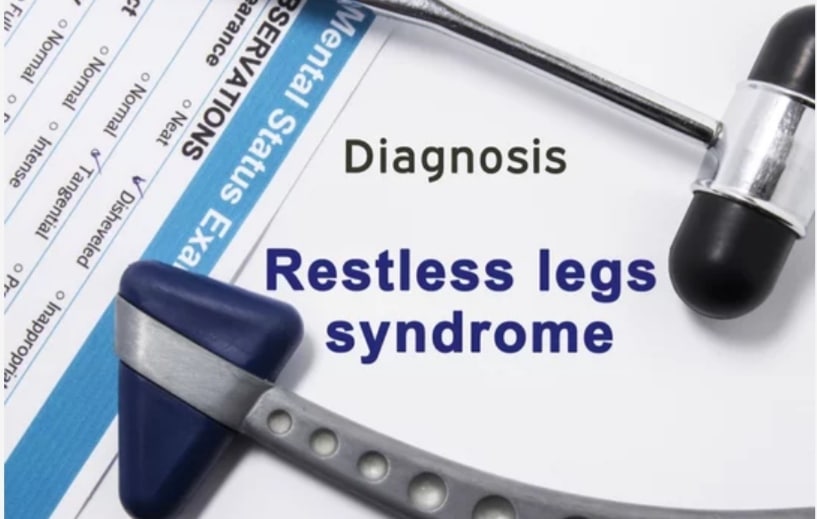Share this post
Work can be stressful—deadlines pile up, emails never seem to stop, and meetings could’ve been an email. The problem is, stress doesn’t just make work harder; it can affect your mood, energy levels, and even your health. Since you can’t always step away for a walk or book a last-minute massage, you need quick and effective ways to manage stress right where you are—at your desk.
Good news: there are plenty of ways to relieve tension without leaving your chair. Some are physical, some are mental, and some just involve tweaking your workspace a little. The key is finding what works for you and making it part of your daily routine. Let’s go over a few techniques that can help you feel a little more in control, even on the busiest days.
Physical Techniques
Deep Breathing Exercises
One of the simplest but most effective ways to calm yourself down is deep breathing. When you’re stressed, your breathing tends to get shallow, which can make things worse. Try a simple technique like box breathing: inhale for four seconds, hold for four, exhale for four, and hold again for four. Repeat a few times and notice how your body starts to relax. This works because it signals to your nervous system that everything is okay, even if your inbox says otherwise.

Stretching & Posture Adjustments
Sitting all day can make your body tense up without you even realising it. A few easy stretches at your desk can make a huge difference. Try rolling your shoulders, tilting your head from side to side, or standing up for a quick stretch. If you’re feeling ambitious, stand up and do a few squats or toe touches. Also, check your posture—are you hunched over like a gremlin? Adjusting your chair height, sitting up straight, and keeping your feet flat on the ground can help you feel less fatigued and more comfortable throughout the day.
Progressive Muscle Relaxation
This is a sneaky little trick that can help when stress has your muscles tied up in knots. Start at your feet and slowly tense each muscle group for a few seconds before releasing. Move up through your legs, stomach, arms, and shoulders until you’ve worked through your whole body. It’s like a mini massage without the awkward small talk.
Mental & Emotional Techniques
Mindfulness & Mini Meditation
You don’t need candles or a meditation app to practice mindfulness. Just take a moment to focus on the present—notice how your body feels, listen to the sounds around you, and take a few deep breaths. If you can spare a couple of minutes, close your eyes and focus on nothing but your breath. Even a tiny break like this can reset your brain and help you refocus.
If you’ve ever wanted to learn more structured ways to manage stress, mental health first aid courses can provide useful techniques. There are companies like Siren Training https://sirentraining.com.au/p/mental-health-first-aid/ who conduct these training face to face seminars on location. These types of sessions often cover mindfulness strategies, helping you develop habits that make it easier to handle workplace stress in the long run.
Positive Affirmations & Gratitude
It sounds a little cheesy, but positive self-talk can actually help shift your mindset. Instead of thinking, "I’ll never get this done," try, "I’ll tackle this one step at a time." Writing down a few things you’re grateful for can also put things into perspective. Maybe your coffee was extra good today, or you finally cleared out that old project file. Small wins count.

Visualisation Techniques
When everything feels overwhelming, take a mental vacation. Close your eyes and imagine yourself in a peaceful place—maybe a beach, a forest, or just your comfy couch at home. Try to picture every detail, from the sounds to the smells. Your brain responds to visualisation in a similar way to real experiences, so this can trick it into calming down.
Productivity & Work Habits
The Pomodoro Technique
Ever heard of working in sprints? The Pomodoro Technique involves setting a timer for 25 minutes, working on a task with full focus, then taking a short 5-minute break. After four cycles, take a longer break. It keeps your brain fresh and prevents burnout. Plus, knowing you only have to focus for 25 minutes makes starting a task feel less daunting.
Task Prioritisation
Sometimes stress isn’t just about workload—it’s about not knowing where to start. A simple trick is using the Eisenhower Matrix: sort tasks into four categories—urgent/important, important/not urgent, urgent/not important, and neither. Tackling things in order of priority can make you feel more in control instead of drowning in a never-ending to-do list.
Setting Boundaries
If you’re constantly getting interrupted, stress is inevitable. Set some boundaries—mute unnecessary notifications, let colleagues know when you’re in deep work mode, and don’t be afraid to say no when you’re overloaded. Your time is valuable, and it’s okay to protect it.
Sensory & Environmental Techniques
Music & White Noise
Sound can influence your mood in a big way. If you need to focus, instrumental music, lo-fi beats, or white noise can help drown out distractions. If you’re feeling sluggish, something upbeat might give you an energy boost. Just be mindful of volume—blasting your music might stress out the person sitting next to you.
Aromatherapy at Your Desk
A little scent therapy can go a long way. Essential oils like lavender, peppermint, or citrus can help with relaxation or focus. You don’t need a diffuser—just dabbing a little on your wrist or using a scented lotion can do the trick. Just keep it subtle so your desk neighbour doesn’t feel like they walked into a candle shop.
Lighting & Temperature Adjustments
Your environment can have a big impact on your stress levels. Harsh lighting can cause eye strain, while dim lighting might make you feel sluggish. Adjusting your workspace lighting to a softer, natural tone can help create a more comfortable atmosphere. Similarly, if you’re too hot or too cold, it’s hard to concentrate. Keep a sweater nearby or a small fan at your desk to maintain a comfortable temperature.
Social & Behavioural Techniques
Quick Social Breaks
Humans are social creatures, and sometimes the best stress relief is a quick chat with a coworker. Step away from your screen for a few minutes and talk to someone about literally anything that isn’t work. Even a short exchange can help break up the tension.
Laughter Therapy
Ever notice how everything feels a little better after a good laugh? Take a moment to watch a funny video, read a joke, or look at a ridiculous meme. Laughter releases endorphins, which are basically your body’s natural stress relief.
Micro Acts of Kindness
Doing something nice for someone else can actually make you feel better. Send a quick thank-you email, compliment a coworker’s work, or bring someone a coffee. Small acts of kindness create a positive ripple effect that benefits everyone.
Practicing Empathy & Active Listening
Sometimes stress comes from feeling disconnected. Taking the time to listen to a coworker’s concerns or offering support when someone seems overwhelmed can foster a more positive work environment. When people feel heard, they’re less likely to let stress build up, and that benefits everyone in the office.
Wrapping It Up
Stress at work is inevitable, but feeling overwhelmed doesn’t have to be. With a few simple tweaks to your daily routine, you can keep stress levels in check and make your workday a little more manageable. Try out different techniques and see what works best for you. The goal isn’t to eliminate stress entirely—that’s impossible—but to handle it in a way that keeps you sane, productive, and maybe even a little happier at your desk.

Isreal olabanji a dental assistant and public health professionals and has years of experience in assisting the dentist with all sorts of dental issues.
We regularly post timely and trustworthy medical information and news on Fitness, Dental care, Recipes, Child health, obstetrics, and more.




